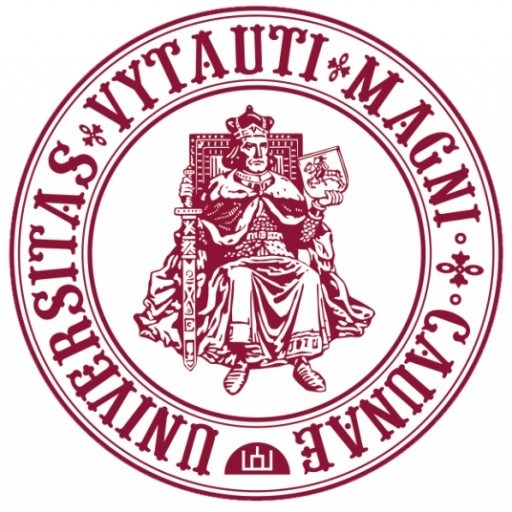Photos of university / #universityofcyprus
The Bachelor of Laws (LL.B.) programme at the University of Cyprus offers a comprehensive and rigorous legal education designed to prepare students for successful careers in the legal field. This undergraduate degree provides an in-depth understanding of the fundamental principles of law, legal systems, and their application within Cyprus and beyond. The curriculum covers a broad spectrum of legal disciplines, including constitutional law, criminal law, civil law, commercial law, European Union law, and international law, ensuring students acquire a well-rounded legal knowledge base.
The programme emphasizes critical thinking, analytical skills, and ethical considerations, fostering students’ ability to interpret and apply legal rules effectively. Furthermore, students engage in practical legal exercises, moot courts, and internships, which enhance their practical skills and provide valuable insights into the functioning of the legal profession. The University of Cyprus’s law faculty boasts experienced academics and legal practitioners dedicated to mentorship and research, creating an enriching academic environment.
Graduates of the LL.B. programme are equipped to pursue professional careers in various legal sectors, including private practice, public service, academia, and international organizations. The programme also serves as a solid foundation for postgraduate studies in law or related fields. With its focus on both national and European legal contexts, the LL.B. at the University of Cyprus prepares students to operate effectively in a globalized legal environment, fostering a commitment to justice, integrity, and lifelong learning.
The Master's Programme in International and European Law at the University of Cyprus offers a comprehensive and in-depth exploration of the legal frameworks that govern international relations and European integration. Designed for students aiming to develop a nuanced understanding of international legal principles, European Union law, and their practical applications, this program combines rigorous academic coursework with real-world legal challenges. The curriculum covers a wide spectrum of topics including public international law, European constitutional law, human rights law, environmental law, and trade law, equipping graduates with a versatile skill set suitable for careers in academia, governmental institutions, law firms, international organizations, and NGOs.
Throughout the programme, students engage with critical legal theories and analyze complex legal issues through case law, legal texts, and current international affairs. Emphasis is placed on the development of analytical and research skills, fostering an ability to interpret and apply legal principles in diverse contexts. The programme encourages active participation through moot courts, internships, and seminars featuring leading legal experts, ensuring students are well-prepared to enter the global legal landscape. Furthermore, the interdisciplinary approach integrates perspectives from political science, economics, and history, providing a holistic understanding of the legal processes shaping Europe and the world.
The faculty comprises experienced academics and legal practitioners who bring practical insights and up-to-date knowledge into the classroom. Students benefit from access to extensive legal resources, research centers focused on European and International Law, and opportunities for international exchanges. The Master's programme also emphasizes the importance of promoting values such as democracy, human rights, and the rule of law, aligning academic study with the broader societal goals of justice and equality. Graduates of this programme will be equipped not only with expert legal knowledge but also with critical thinking and advocacy skills necessary for effective legal practice and policymaking in an increasingly interconnected world.
The University of Cyprus offers a comprehensive Master's program in International and European Law designed to equip students with a thorough understanding of the legal frameworks governing international relations and European integration. To be admitted into this program, applicants must possess a recognized undergraduate degree in law or a closely related field from an accredited institution. Applicants are generally required to demonstrate proficiency in English, typically through standardized tests such as TOEFL or IELTS, unless their prior education was conducted in English. The selection process may also consider prior academic performance, relevant professional experience, and motivation for pursuing advanced studies in this area.
The curriculum encompasses core courses that cover essential topics such as International Law, European Union Law, Human Rights Law, Migration Law, and International Institutions. Specialized modules may include Public International Law, European Economic Law, and International Criminal Law, among others. Students are encouraged to engage in advanced research and practical exercises, including moot courts and internships, to apply theoretical knowledge in real-world contexts. The program aims to develop critical thinking, analytical skills, and an in-depth understanding of both the legal principles and policy issues affecting international and European legal systems.
Apart from coursework, students are typically required to complete a master's thesis or research project demonstrating their ability to independently analyze complex legal problems, synthesize scholarly literature, and propose informed solutions. The thesis allows students to specialize in areas aligning with their career interests, such as European integration, international human rights, or international trade law. Throughout their studies, students benefit from interactions with faculty members who are experts in their fields, as well as access to relevant legal resources, databases, and networks that facilitate research and professional development.
Graduates of the program are prepared for careers in legal practice, policymaking, research, or academia within national, European, and international organizations. They may find employment in law firms, governmental agencies, NGOs, international institutions like the European Court of Justice, or undertake further doctoral research. The program emphasizes the development of a comprehensive legal skill set, including legal analysis, advocacy, and negotiation, in addition to a nuanced understanding of international and European legal environments.
The financing of the International and European Law program at the University of Cyprus is primarily supported through a combination of tuition fees, government funding, and various scholarship opportunities. Students enrolled in the program are required to pay tuition fees, which are determined by the university’s fee structure for graduate and undergraduate law programs. The exact tuition fee amounts may vary depending on the student’s residency status and whether they are enrolled on a full-time or part-time basis. Typically, international students are subject to higher fees compared to domestic students, aligning with the university's policies aimed at promoting accessibility and internationalization.
In addition to tuition fees, the University of Cyprus benefits from funding allocated by the government of Cyprus, which aims to promote higher education and international cooperation. This funding helps support the university's infrastructure, faculty salaries, research activities, and student services, contributing indirectly to the program's financial stability. The university also allocates funds for research grants and development projects related to European and international law topics, enhancing the quality of education and providing students with opportunities for research-based learning.
Students have access to a range of external scholarships, grants, and financial aid programs offered by the Cypriot government, the European Union, international organizations, and private foundations. These scholarships are aimed at both domestic and international students to support their academic pursuits. Competitive scholarships are often awarded based on academic merit, financial need, or specific criteria related to the student’s background or research interests.
The university promotes financial transparency and provides detailed information about the cost of study and available financial support through its official website and student services office. Payment plans may be available to help students manage their tuition payments over the course of their studies. Furthermore, students may access part-time work opportunities on and off-campus to supplement their finances, in accordance with the university's policies and legal regulations governing student employment.
Overall, the financing framework of the International and European Law program combines institutional funding, government support, scholarship programs, and student employment options, ensuring that students can pursue their education with adequate financial planning and support mechanisms in place. This comprehensive approach aims to make the program accessible to a diverse student body, promoting higher education and specialization in the fields of European and international legal studies at the University of Cyprus.
The International and European Law program at the University of Cyprus offers students an in-depth understanding of the legal frameworks governing international relations and European integration. This postgraduate program is designed to equip students with advanced knowledge of international law principles, European Union law, and the legal mechanisms that facilitate cooperation among nations and within the EU. The program covers a broad range of topics, including human rights law, international dispute resolution, public international law, and the legal aspects of European integration. Students will analyze cases from international courts and EU institutions, gaining practical skills necessary for careers in diplomacy, international organizations, law firms, or governmental agencies.
The curriculum emphasizes critical thinking, research proficiency, and the application of legal theories to real-world issues. Courses include modules on international humanitarian law, the law of the sea, trade law, and environmental law, ensuring a comprehensive perspective on contemporary legal challenges. The program also promotes understanding of the historical development of international and European law and explores current debates surrounding sovereignty, global governance, and regional integration.
Students have access to experienced faculty members, many of whom are scholars and practitioners with international experience. The program offers opportunities for internships and collaboration with international organizations, enhancing students' practical understanding and employability. Additionally, the program encourages research, culminating in a master's thesis that allows students to investigate a specialized area of international or European law in depth. Graduates of this program are prepared for careers in international courts, governmental agencies, NGOs, international institutions, or further academic pursuits. The program's multidisciplinary approach ensures that students develop the analytical, research, and communication skills needed to excel in a variety of international legal environments.









